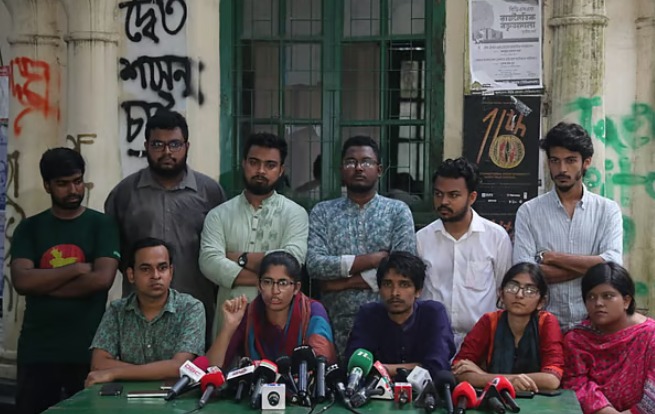Desk Report,
NCP calls on BNP to change its stance on ACC and PSC
Jatiya Nagorik Party (NCP) member secretary Akhtar Hossain has urged the BNP to move away from its party position on the inclusion of the Anti-Corruption Commission (ACC) and Public Service Commission (PSC) appointment committees in the constitution.
NCP calls on BNP to change its stance on ACC and PSC
Akhtar Hossain told reporters after the 20th day of the second phase of the National Consensus Commission’s discussions with political parties at the Foreign Service Academy in the capital on Monday.
Akhtar Hossain said that most political parties, including the NCP, agreed with the commission’s proposal at the consensus commission meeting. He said, “Only the BNP PSC and Anti-Corruption Commission appointment committees have objected to the inclusion in the constitution. We will appeal to the BNP to change your party position on the remaining important statutory institutions, just as you have changed your party position on the Election Commission and agreed on it.” The National Consensus Commission had proposed the formation of the National Constitutional Council (NCC) to make appointments to constitutional institutions. According to that proposal, the nine-member committee headed by the President will make appointments to constitutional institutions as well as to positions prescribed by law, including the Attorney General and the heads of the defense forces.
In the face of opposition from several parties, including the BNP, on June 25, the National Consensus Commission proposed a new proposal called the Appointments Committee for Constitutional and Statutory Institutions instead of the NCC during the dialogue of the National Consensus Commission. According to this proposal, a seven-member committee headed by the Prime Minister will make appointments to the Election Commission, Anti-Corruption Commission, Public Service Commission, Auditor General and Comptroller, National Human Rights Commission, Information Commission and other constitutional and statutory institutions established by law. However, the BNP and five like-minded parties opposed this proposal as well. They believe that this will tie the hands and feet of the executive branch.
The BNP agreed to the proposal conditionally that a person could hold the post of Prime Minister for a maximum of 10 years on that day. In that case, the party stipulated that the provision for the formation of the NCC or any such committee for appointments to constitutional positions cannot be added to the constitution.
In this regard, Akhtar Hossain said, “In the last half century, every party that has come to power in Bangladesh has appointed party people to constitutional and state institutions in their own way. As a result, the institutions have been affected by partisanship and have lost their public friendliness.”
Regarding appointments to the PSC and ACC, the NCP leader said, “We have talked about a selection committee that will be party-neutral and where both the government and opposition parties will be represented. In this way, it will be possible to pave the way for good governance by preventing political influence on appointments.”
Currently, according to Article 138 of the Constitution, the President makes appointments to statutory institutions in consultation with the Prime Minister. In this regard, Akhtar Hossain said, even if this position is changed and the proposal of a neutral verification committee is included in the Constitution, it will not be a big change, but rather the beginning of effective accountability.
The NCP member secretary said, “We want a Bangladesh where appointments are made on the basis of merit and competence, not on the basis of party loyalty. The ACC is now a statutory institution, whose head is appointed by the head of the government. “As a result, it often hides the corruption of the ruling party and targets the opposition. We want it to be considered a constitutional institution, whose head and members will be appointed through an impartial selection committee.”




